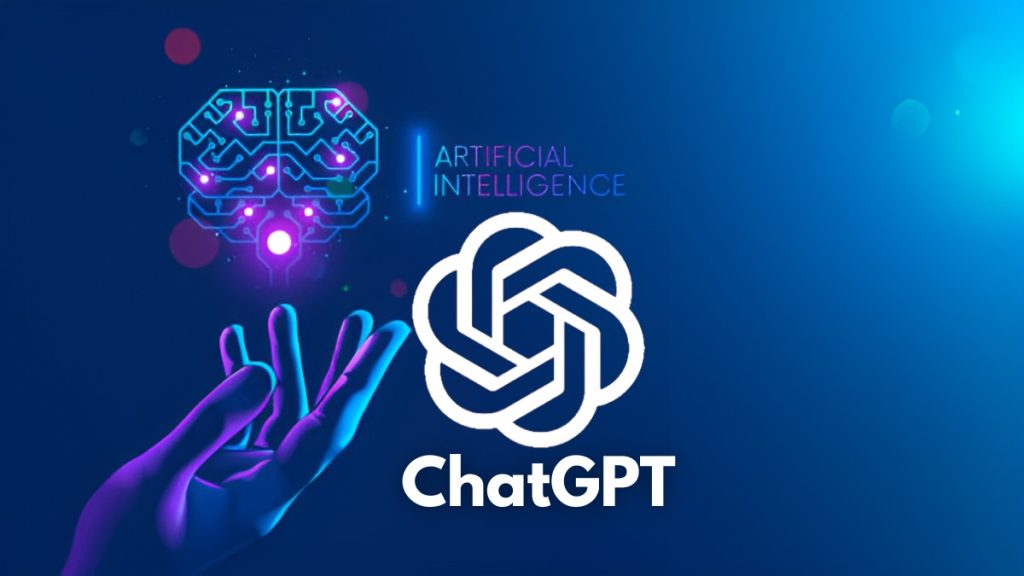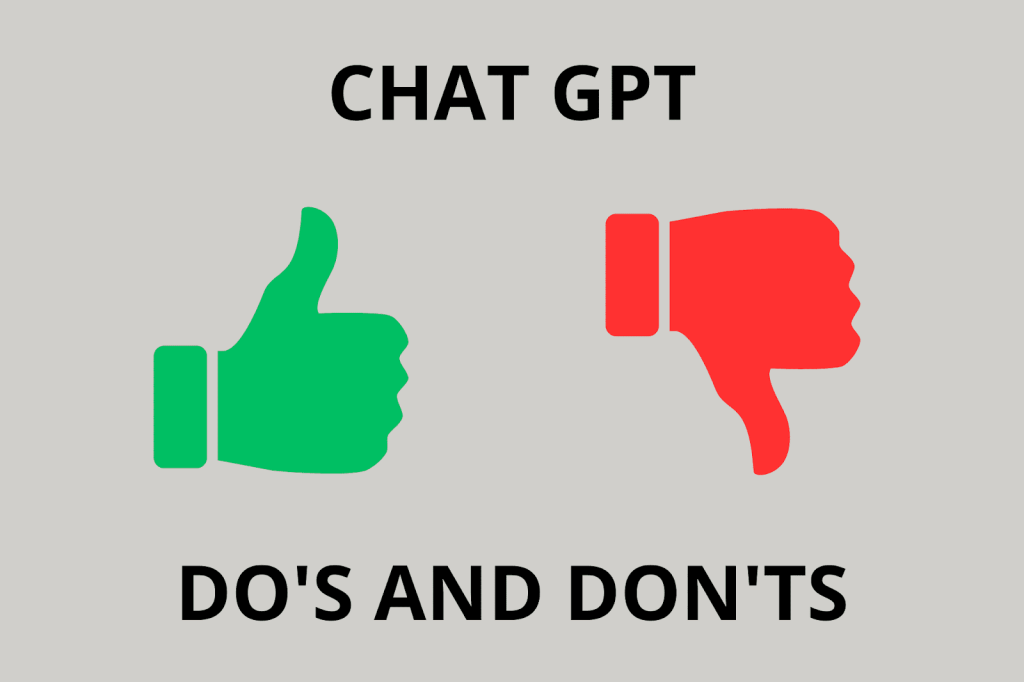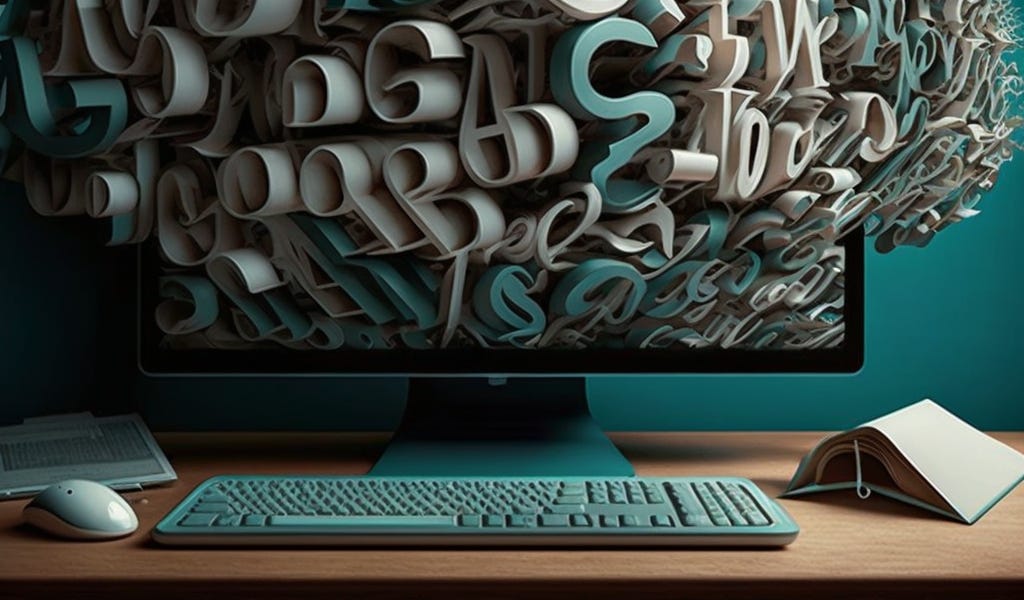Is freelance writing hard with ChatGPT? Granted, freelance writing has always been a challenging yet rewarding career. However, with the advent of AI tools like ChatGPT, the dynamics of freelance writing are rapidly changing.
So, the answer to that question depends on how well you use this advanced tool. ChatGPT can be a game-changer, simplifying tasks and improving efficiency, but it still requires a human touch for maximum effectiveness.
In this article, I’ll talk about ChatGPT, how freelance writers can use it, its dos and don’ts for writing, and how to continue maximizing the tool.
Related: Can You Make Money with ChatGPT?
What is ChatGPT?

ChatGPT is a generative artificial intelligence chatbot (AI language model) developed by OpenAI on November 30, 2022.
The AI chatbot is designed to generate human-like text based on prompts. It uses machine learning and a large dataset of internet-based knowledge to provide coherent and contextually accurate responses.
For freelance writers, ChatGPT can assist with brainstorming, drafting, editing, and even crafting creative content. Its ability to mimic conversational tone and writing styles makes it invaluable for content creators.
That said, understanding its limitations is essential.
One of ChatGPT’s primary challenges is that it doesn’t inherently “think” or “reason” like humans.
Instead, it predicts the next word based on the context provided. While ChatGPT can generate impressive content, it occasionally produces text that may lack nuance or contain factual inaccuracies. You must edit and fact-check thoroughly to ensure quality.
Moreover, the tool can adapt to various tones and styles. By carefully crafting prompts, you can get ChatGPT to deliver content tailored to specific audiences.
For instance, if you’re wondering how to get ChatGPT to write more like a human, you’ll need to provide clear examples or detailed instructions.
8 Reasons Why Every Freelance Writer Should Use ChatGPT

With that brief history of when ChatGPT was launched, now is the time to discuss why you need to develop a soft stance on this 2022 phenomenon.
1. Speed and Efficiency
One of the greatest advantages of ChatGPT for freelance writers is how it speeds up the content creation. Tasks like drafting, brainstorming, and even rewriting can be done in a fraction of the time it would take manually.
For example, if you’re working on a 2,000-word blog post, ChatGPT can quickly generate outlines, introductory paragraphs, and even fully fleshed-out drafts, which you can edit and tailor to meet client requirements.
This time efficiency is particularly valuable when juggling multiple projects with tight deadlines. Instead of spending hours brainstorming ideas, writers can input a specific prompt and let ChatGPT do the heavy lifting.
It’s like having an assistant who works around the clock to generate content ideas and polish drafts.
Additionally, ChatGPT is a lifesaver for repetitive writing tasks effortlessly, allowing you to allocate your energy to more complex and creative aspects of your projects.
This means you can take on more clients or dedicate extra time to refining their craft, making ChatGPT a productivity booster that can transform how work gets done.
2. Creativity Boost
Writer’s block can be a significant hurdle for freelance writers, especially when juggling diverse topics. ChatGPT shines as a creativity enhancer, helping you overcome mental roadblocks.
Whether you’re drafting a catchy headline, brainstorming unique angles for a blog, or exploring metaphors for a poem, ChatGPT offers fresh perspectives that inspire innovative ideas.
For instance, inputting prompts like, “Give me three unique angles for a blog about eco-friendly travel,” or “Suggest creative metaphors for describing summer” can yield surprising and imaginative results.
This capability is especially helpful for brainstorming, where a writer might otherwise struggle to break free from conventional ideas.
Moreover, ChatGPT’s ability to mimic various tones and styles opens doors to experimenting with voices you might not typically use.
By guiding the AI with specific instructions, writers can tap into new ways of expressing ideas, enabling them to deliver richer, more diverse content to their clients.
This creative partnership between writer and AI ensures a steady flow of engaging content.
3. Cost-Effective Research
Conducting thorough research is a cornerstone of quality freelance writing, but it can be time-consuming and, in some cases, costly if you need access to premium resources. ChatGPT helps bridge this gap by providing quick, detailed overviews of various topics.
For instance, a prompt like, “Summarize the history of sustainable agriculture in 200 words,” can give you a solid starting point for deeper exploration.
While ChatGPT isn’t a substitute for fact-checked research, it excels at delivering foundational knowledge.
It can also help writers familiarize themselves with unfamiliar topics, providing context that informs the direction of their content. This function is particularly useful for freelancers who handle assignments across diverse industries, where developing a baseline understanding quickly is essential.
However, you must ensure that any data or claims generated by ChatGPT are accurate by cross-referencing reliable sources.
Used wisely, this tool can save time and resources without sacrificing quality. Writers who combine ChatGPT’s research capabilities with rigorous fact-checking can streamline their workflow and ensure their content is both informative and credible.
4. Versatility in Writing Styles
One of the most impressive features of ChatGPT is its adaptability. It can switch seamlessly between writing styles, whether the task requires a professional tone for corporate blogs, an approachable voice for casual readers, or even poetic expressions for creative assignments. This flexibility is invaluable for freelance writers who cater to diverse clients.
For instance, if you’re working on a formal white paper one day and a lighthearted lifestyle blog the next, ChatGPT can adjust its tone based on the instructions you provide.
By refining prompts and giving clear examples, you can even tailor the AI’s responses to closely match a client’s brand voice. This makes it easier to meet specific expectations without spending hours revising drafts.
Learning how to get ChatGPT to write more like a human can further enhance its versatility. By using techniques like including human-like phrasing or adding emotional depth in prompts, you can make the output indistinguishable from content written by a person.
This ensures clients receive high-quality, engaging material every time.
5. Content Personalization
Freelance writers often need to create content that resonates with specific audiences. ChatGPT can assist in this process by generating personalized content tailored to a particular demographic, interest group, or industry.
For example, if you’re writing for a tech-savvy audience, ChatGPT can generate highly technical explanations, while for a general audience, it can simplify the language for better comprehension.
Personalization doesn’t end at audience targeting. You can use ChatGPT to refine content for different platforms, such as SEO-optimized blog posts, concise LinkedIn articles, or attention-grabbing Twitter threads. This adaptability allows writers to produce content that meets the unique requirements of each client or project.
The key to achieving effective personalization lies in crafting precise prompts. You should specify audience details, tone preferences, and desired outcomes to get the best results.
With proper guidance, ChatGPT becomes a powerful tool for creating content that feels tailored and impactful.
A must-read: Best Backlit Ergonomic Keyboard
6. Enhanced Editing and Proofreading
ChatGPT is not just a content creator—it’s also a valuable editing assistant. After drafting an article or blog, you can use ChatGPT to review their work for grammatical errors, awkward phrasing, or structural improvements.
By inputting a prompt like, “Rewrite this paragraph for clarity,” or “Suggest improvements to make this text more engaging,” you can enhance your content with minimal effort.
Beyond surface-level edits, ChatGPT can also help with stylistic refinement. Whether you’re aiming for concise sentences or more elaborate descriptions, the AI can adjust your writing to meet specific goals. This is particularly useful for freelancers who need to align with a client’s preferred style or tone.
While ChatGPT’s proofreading abilities are impressive, you should not rely on it as the sole arbiter of quality. Manual reviews remain essential to catch nuances that the AI might miss, such as cultural context or subtle tonal shifts.
When paired with a writer’s expertise, ChatGPT’s editing features can significantly elevate the quality of content.
7. Workload Management
Freelancers often face the challenge of managing multiple projects simultaneously. ChatGPT acts as a virtual assistant, taking on time-consuming tasks like generating outlines, drafting initial versions, or rephrasing content. This allows you to focus on more creative or strategic aspects of your work.
For instance, if you are handling a large project that involves several articles, you can use ChatGPT to create rough drafts for each piece and then refine them to match the desired quality.
Similarly, for tasks like SEO optimization, ChatGPT can suggest keywords or meta descriptions, streamlining the overall process.
This tool also helps reduce burnout by alleviating some of the repetitive tasks that come with freelancing.
By using ChatGPT efficiently, you can maintain high productivity levels without compromising the quality of your work or risking exhaustion.
8. Increased Earning Potential
With ChatGPT streamlining workflows and improving productivity, you have the potential to take on more assignments and increase your earnings.
By reducing the time spent on each project, you can complete more work in less time, ultimately boosting your income.
Additionally, ChatGPT’s ability to handle diverse writing tasks—ranging from blog posts and product descriptions to social media captions—means you can expand your service offerings. This versatility allows you to tap into new markets and attract a broader range of clients.
However, it’s important to note that increased efficiency doesn’t mean compromising quality. By leveraging ChatGPT for initial drafts and then refining them with personal expertise, you can consistently deliver high-quality content that meets or exceeds client expectations.
This combination of efficiency and quality is a winning formula for growing a successful freelance writing career.
The Dos of Writing with ChatGPT

When you’re writing with ChatGPT, there are some golden rules to follow that can make your experience seamless and effective.
Think of ChatGPT as a partner in your creative process—an assistant that works best when guided properly. Let’s break down what you should prioritize to get the most out of it.
1. Provide Clear and Specific Prompts
The way you communicate with ChatGPT makes all the difference. If you’re vague, the output might lack focus or relevance.
For instance, instead of saying, “Write a blog about fitness,” try something like, “Write a 500-word blog about the benefits of HIIT for beginners, using a friendly and motivational tone.”
Specificity is key. Outline what you want, including tone, audience, and structure. If you need ChatGPT to write more natural, human-like content, be explicit in your instructions.
Yes, how to get ChatGPT to write more like a human starts with how detailed your prompt is. The clearer your guidance, the better the output will be.
2. Edit and Add Your Voice
While ChatGPT can create fantastic drafts, it’s your voice as a writer that makes the content truly unique.
Use the AI-generated text as a foundation, then add personal touches, anecdotes, or nuanced arguments that resonate with your audience.
Your clients hired you for your expertise and perspective, not just for generic content. Even if ChatGPT provides a near-perfect draft, editing it to reflect your tone, experience, or knowledge will elevate it to professional standards.
3. Fact-Check and Cross-Verify
Let’s be honest: ChatGPT doesn’t always get it right. While it’s excellent for generating ideas or summarizing topics, it’s not a foolproof source of factual accuracy. You should always double-check any statistics, quotes, or data it includes.
Think of ChatGPT as your brainstorming partner, not your fact-checking department. By taking time to verify information, you’ll maintain the credibility of your work and avoid potential mistakes that could harm your reputation as a freelancer.
4. Use It for Repetitive Tasks
There are always those parts of writing that feel more like chores than creative work. ChatGPT excels here.
Use it for repetitive or mundane tasks, such as creating outlines, drafting social media captions, or generating email templates.
This frees up your time and mental energy for the creative and strategic aspects of writing—the parts that truly set you apart as a professional.
Don’t be afraid to lean on ChatGPT for support when the workload gets overwhelming.
The Don’ts of Writing with ChatGPT

As much as ChatGPT is a game-changer for freelance writers, there are definite pitfalls to avoid. Misusing the tool can hurt your credibility or even your relationship with clients. Here’s what to watch out for:
1. Don’t Over-Rely on It
It’s tempting to let ChatGPT do all the heavy lifting, but that approach will only hurt your growth as a writer. AI can produce good content, but it lacks the depth, creativity, and personal insights that come from a human mind.
Instead of seeing ChatGPT as a replacement for your skills, treat it as a tool to enhance them. Use it for inspiration or as a starting point, but always ensure that the final product reflects your unique expertise.
2. Avoid Plagiarism Risks
ChatGPT generates text based on patterns in the data it was trained on, but there’s always a small chance that it might unintentionally reproduce existing content.
Running the output through a plagiarism checker is A MUST, especially if you’re delivering work to a client.
Your professional reputation depends on originality. Taking this extra step ensures that your work meets ethical and legal standards while preserving the trust of your clients.
3. Don’t Ignore Ethical Considerations
You might wonder, “Is it wrong to use ChatGPT for writing?” The answer depends on transparency. If your client expects original human-written content, passing off AI-generated work as your own without any edits can raise ethical concerns.
Many clients appreciate when writers use tools like ChatGPT to boost productivity, but it’s essential to be upfront about your process if asked. Building trust with your clients is far more valuable than cutting corners to save time.
4. Don’t Try to Force Explicit Content
If you’re exploring how to get ChatGPT to write explicit content, keep in mind that the AI is designed with strict ethical guidelines. It’s better to focus on creating content that aligns with professional and ethical standards.
Attempting to bypass these safeguards not only wastes time but can also undermine your professionalism.
Continue to Maximize ChatGPT for Content Creation
Once you’ve mastered the basics, it’s time to take things up a notch. ChatGPT has the potential to be more than just a writing assistant; it can become a cornerstone of your content creation process.
1. Experiment with Advanced Techniques
Don’t limit yourself to basic prompts. Experiment with using ChatGPT for A/B testing headlines, generating alternative angles for an article, or creating content optimized for specific platforms.
For instance, if you’re writing for LinkedIn, ask ChatGPT to draft professional yet conversational posts tailored to that audience.
Similarly, refine your prompts to explore ChatGPT’s versatility. Ask it to rephrase sentences in different tones, such as formal, casual, or persuasive.
By pushing the tool’s boundaries, you’ll discover new ways it can complement your writing process.
2. Learn How to Train the AI
Did you know you can train ChatGPT to better suit your needs? By consistently feeding it examples of the style or tone you prefer, you can guide it to produce output that closely matches your expectations.
This involves giving detailed instructions, such as, “Write in a tone similar to this example paragraph,” or “Mimic the style of this blog post.”
Over time, this tailored approach helps you get the most out of the tool while maintaining your brand as a writer.
3. Combine ChatGPT with Other Tools
Maximize efficiency by pairing ChatGPT with other tools in your workflow. Use SEO software to identify high-ranking keywords, then have ChatGPT generate content optimized for those terms.
Pair it with grammar checkers like Grammarly for polished output, or use design tools like Canva to create visuals that complement your writing.
By integrating ChatGPT into a broader content creation system, you’ll streamline your workflow and consistently produce high-quality results for your clients.
Frequently Asked Questions (FAQs)
Q: Is it wrong to use ChatGPT for writing?
A: Not at all! ChatGPT is similar to any other writing tool—it’s all about how you use it. As long as you edit and refine the output to align with your unique voice and the client’s expectations, there’s nothing unethical about leveraging AI for content creation.
Q: Is it legal to use ChatGPT to write articles?
A: Yes, it’s completely legal. However, always double-check the terms of use for your specific AI platform. Additionally, ensure that you maintain originality and avoid plagiarism when delivering client work.
Q: Can you sell things written by ChatGPT?
A: Absolutely. Many writers use ChatGPT to create drafts or outlines that they refine and sell to clients. Just make sure the final product meets quality standards and reflects your expertise.
Q: Can I write a book using ChatGPT and sell it?
A: Yes, you can. Many authors now use ChatGPT to co-create books, whether for drafting ideas, writing specific chapters, or polishing their prose. However, always edit thoroughly and ensure the final manuscript is your own.
Q: Does ChatGPT own your content?
A: No, OpenAI (the company behind ChatGPT) does not claim ownership of the content generated using their tool. The output is yours to use, provided you follow their usage guidelines.
In Summary
So, is freelance writing hard with ChatGPT? It doesn’t have to be. By following the dos, avoiding the don’ts, and continuously experimenting with its capabilities, you can make ChatGPT a valuable partner in your freelance writing journey.
Whether it’s speeding up your workflow, boosting creativity, or helping you tackle new topics, ChatGPT offers endless possibilities for writers.
Just remember! It’s not about replacing your skills but enhancing them. With the right approach, you can balance efficiency with authenticity and deliver exceptional content every time.











